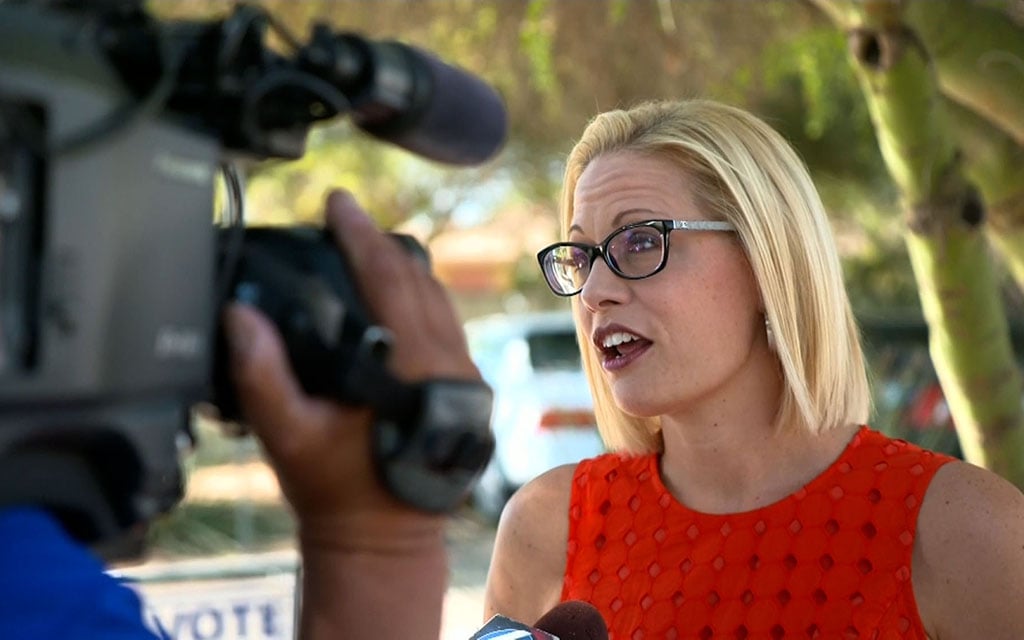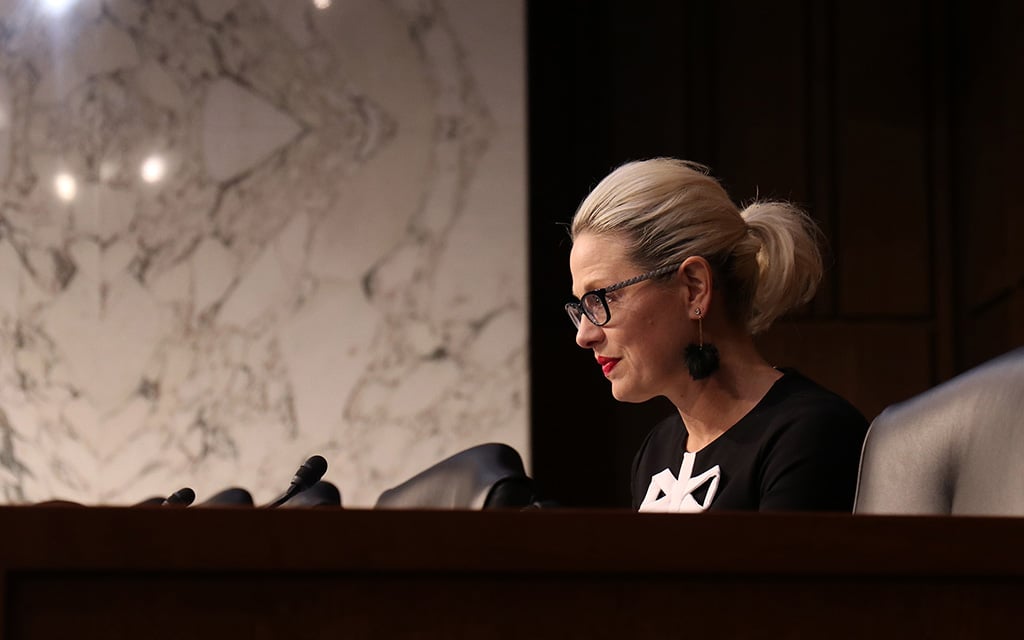WASHINGTON – Arizona Sen. Kyrsten Sinema announced Tuesday that she will not run for re-election this fall, lamenting the current state of partisan politics where voters and lawmakers alike prefer to “retreat farther to their partisan corners.”
The announcement ends months of speculation over Sinema’s political future and removes the possibility of what could have been a three-way race for Senate, as Sinema left the Democratic Party in 2022 to become an independent.
That followed a series of votes that angered progressives, who targeted Sinema over her refusal to back a higher minimum wage and to preserve the filibuster, among other actions.
But in the video message Tuesday where she announced she will not run for reelection, Sinema said she preferred to continue working across the aisle and proceeded to list what she called a series of wins for Arizona as a result of that approach.
She blasted the current state of American politics, citing bipartisanship and a need for more moderation – but conceded, “it’s not what America wants right now.”
“It’s all or nothing. The outcome is less important than beating the other guy,” Sinema said in the video posted to X, formerly known as Twitter. “The only political victories that happen these days are symbolic, attacking your opponents on cable news or social media.
“Compromise is a dirty word. We’ve arrived at that crossroad, and we chose anger and division,” she said.
Lawmakers from both sides of the aisle – many of whom had attacked Sinema recently – were praising her tenure in Congress after Tuesday’s announcement. This includes Rep. Ruben Gallego, D-Phoenix, and Republican Kari Lake, who are considered the front-runners for her seat.
Lake said Sinema “shares my love for Arizona” and Gallego thanked her for “nearly two decades of service to our state.”
Arizona Gov. Katie Hobbs, a Democrat, also complimented Sinema’s time in office, calling her “a friend.”
“She has been an important partner in Washington, D.C., who has fought to bring critical advanced manufacturing investments to Arizona, secure our border, and invest in our state’s roads, bridges, and broadband infrastructure,” Hobbs said.
Paul Bentz, senior vice president of research and strategy at HighGround Public Affairs Consultants, said this is not the first time an Arizona senator has stepped aside due to frustrations with an increasingly partisan Congress. He pointed to Sinema’s predecessor, Republican Jeff Flake, who stepped down citing similar concerns in 2018. Sinema took over Flake’s vacant seat.
“Flake expressed similar beliefs about the system,” Bentz said. “He came in more on the right ideological bent, more conservative bent. But after six years (he came) to the revelation that the system was not set up for success and announced that he would not seek reelection.”
A message for Arizonans from Senator Kyrsten Sinema pic.twitter.com/1XWFSWgGdh
— Kyrsten Sinema (@SenatorSinema) March 5, 2024
Even though Sinema was elected as a progressive and became more of a centrist while in the Senate, Bentz argues “that Flake and Sinema are probably more closely ideologically aligned after 12 years and similar experiences than when they started,” he said.
Sinema stepping aside sets the stage for a likely match-up between Gallego and Lake. Bentz believes this two-way race should be seen as a “big win for Ruben Gallego.”
“There is a portion of unaffiliated voters, disaffected Republicans, and others who simply are not going to go for a MAGA candidate. Sinema provided them with a centrist individual committed to Arizona that was very attractive to some of these audiences,” he said. “But left with a binary choice between Gallego and Lake, they’re likely to go Gallego’s way.”
However, Bentz said it’s important not to get too caught up in the upcoming election. Sinema’s announcement is a sign of trouble for the American political system, and should not be overlooked.
“This is an indictment of the political system that somebody who is looking to solve problems does not and cannot find a political home,” Bentz said. “It was fairly damning for her to say that, ‘I’m trying to solve problems and Arizonans aren’t interested in that or the voters aren’t interested in that right now.’ That speaks to the polarization of the system.”



